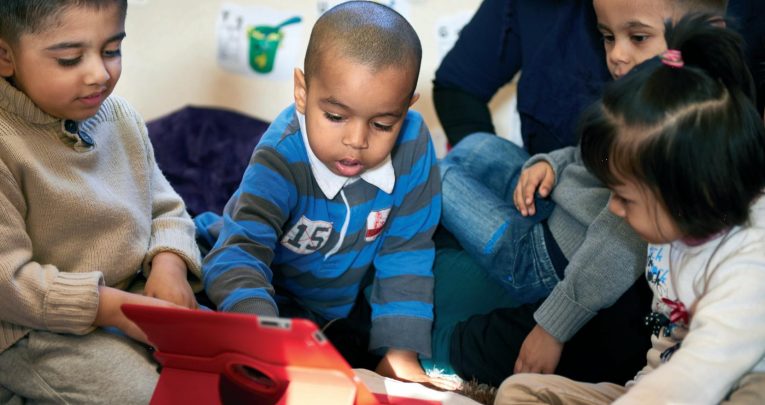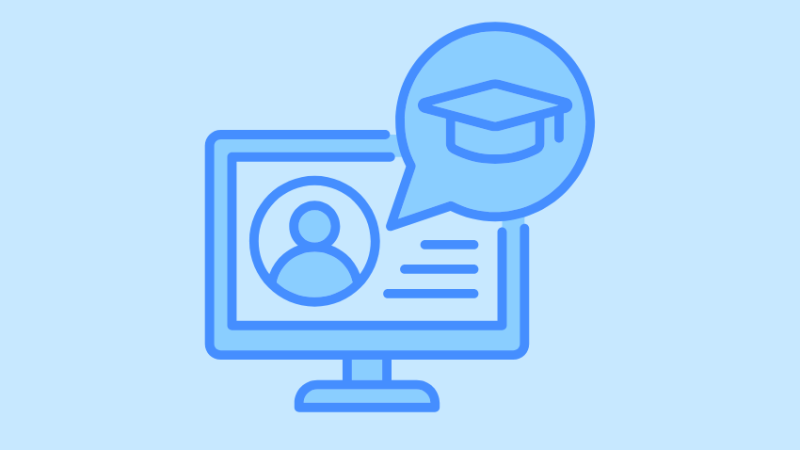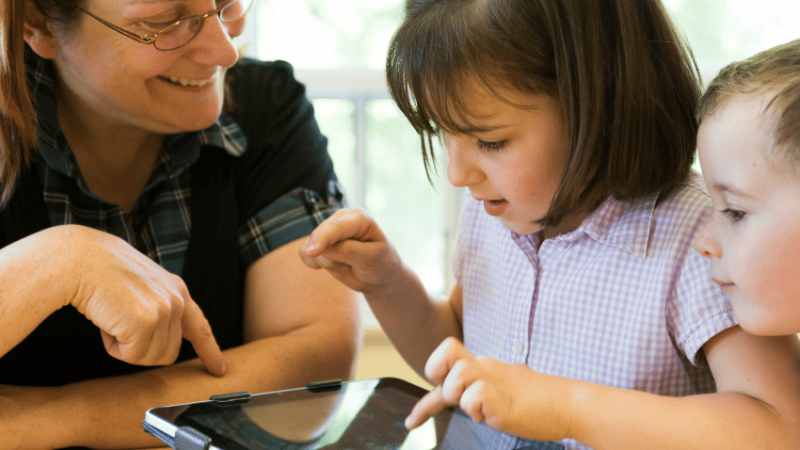Tots, Meet Tablets - How To Make Effective Use Of iPads In Early Years

Dr Natalia Kucirkova explores the benefits and challenges of using Apple’s iPad to supplement EYFS learning… In the hands of capable teachers and curious children, iPads can create some fantastic learning opportunities. One of their distinct advantages is that they are lightweight and portable. They can be used for documenting and enriching activities both inside […]

Dr Natalia Kucirkova explores the benefits and challenges of using Apple’s iPad to supplement EYFS learning…
In the hands of capable teachers and curious children, iPads can create some fantastic learning opportunities.
One of their distinct advantages is that they are lightweight and portable. They can be used for documenting and enriching activities both inside and outside the classroom – or even outside of the school or setting itself when taken on trips, for example. They fuse several technologies into one device, which means that young children can undertake multiple activities simultaneously.
With most of an iPad’s navigation based icons, even very young children can proficiently operate what would once have been several separate gadgets; cameras, microphones and what would once have been typewriters are now all part of a single ‘digital playground’.
Tailored learning
Another major advantage is that adult users can easily customise and individualise the content of iPad activities. Foundation Stage teachers and nursery practitioners can easily adjust an iPad’s font type and text size to suit different needs during reading activities, or make use of additional software to completely personalise the device for individual children.
Lastly, iPads come with what is, at present, the largest base and most mature ecosystem of educational apps, making them an attractive and popular tool for educators worldwide.
These benefits can make supporting learning in the early years classroom a little easier, more fun, and some might say, even more educational. Over a series of studies I conducted with colleagues, we found that well-planned iPad-based activities stimulated children’s motivation and concentration within a range of literacy activities.
The teachers thought that iPads offered rich opportunities for communication, collaborative interaction, and independent learning, while engendering high levels of accomplishment in children. For some teachers, using iPads led them to re-evaluate the children’s literacy competencies, and enabled children to construct more positive images of themselves.
One activity that seemed to work particularly well was children’s story-making. Children used the Our Story iPad app to take pictures of their environment, annotated these with their own text (practising traditional, as well as digital literacy) and added their own sounds – something they perceived as great fun.
Overcoming barriers
There are, however, some recurring concerns that teachers in the early years have about introducing iPads into their provision. Several we worked with felt nervous, because there was very little or no ICT support available to them, and insufficient accompanying material for effective educational deployment of the devices.For an iPad initiative to work well, it is important that teachers are given extra time to enable them to identify the relevant apps that can support their lesson aims and objectives. Teachers told us that they had to spend long hours reading other teachers’ reviews and searching online for appropriate apps. Many felt despondent about the fact that this extra lesson preparation was happening in their own free time and at their own cost.
Although the price of apps is generally low (typically around £1 to £3), the costs can quickly add up if teachers want to try out several before settling on one that work. While headteachers are usually concerned about the costs of hardware, the teachers we interviewed voiced concern about the various hidden costs that can often accompany apps, including in-app purchases and option in some apps to pay to have adverts removed. They were also concerned that with a small pool of iPads available for classroom use, they became confined to group work rather than one-to-one teaching.
In practice
If you want to use iPads in your early years classroom, keep in mind the following steps:• Identify a clear purpose for the use of the iPads. What are your learning goals and how could iPads enrich the planned activity? Does the use of iPads offer extra opportunities for specific children? Think of the highly talented, as well as those with specific educational needs.
• Leverage the potential for iPads to bridge different learning environments. iPads can not only connect classroom work with school trips, but also formal learning with life outside of school.
• Delegate tasks. You are an expert in teaching; you don’t need to be an ICT specialist or know about the very latest apps. You may be able to nominate children to act as digital ambassadors or ‘iChampions’ and regularly report on iPad news and app releases that might be relevant to you. Conversely, having an ICT specialist on hand within the school or setting in case things go wrong is useful for when issues arise, such as Wi-Fi connection problems.
As any educator knows, one doesn’t need the best technology to make great things happen. iPads can be a powerful or ineffective educational tool – it all depends on how well teachers and practitioners can leverage their potential.
Dr Natalia Kucirkova researches innovative ways of supporting shared book reading and the role of personalisation in early years. Her doctoral research inspired the development of the Our Story tablet/smart phone app. She is currently working as a lecturer at The Open University and is interested in fostering children’s trans-media experiences and identity growth. For more information, visit open.academia.edu/NataliaKucirkova or follow @nkucirkova








